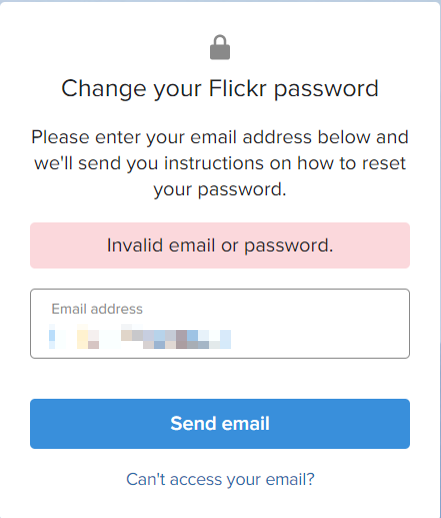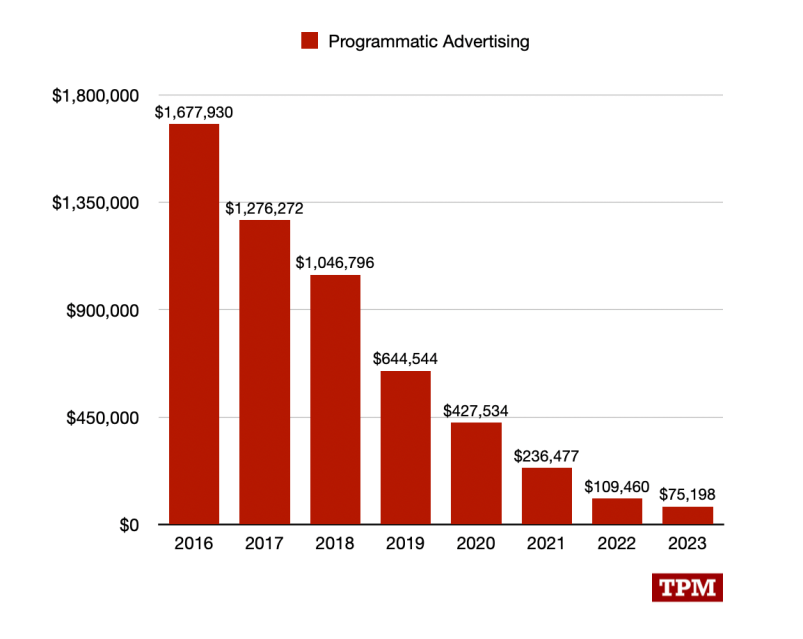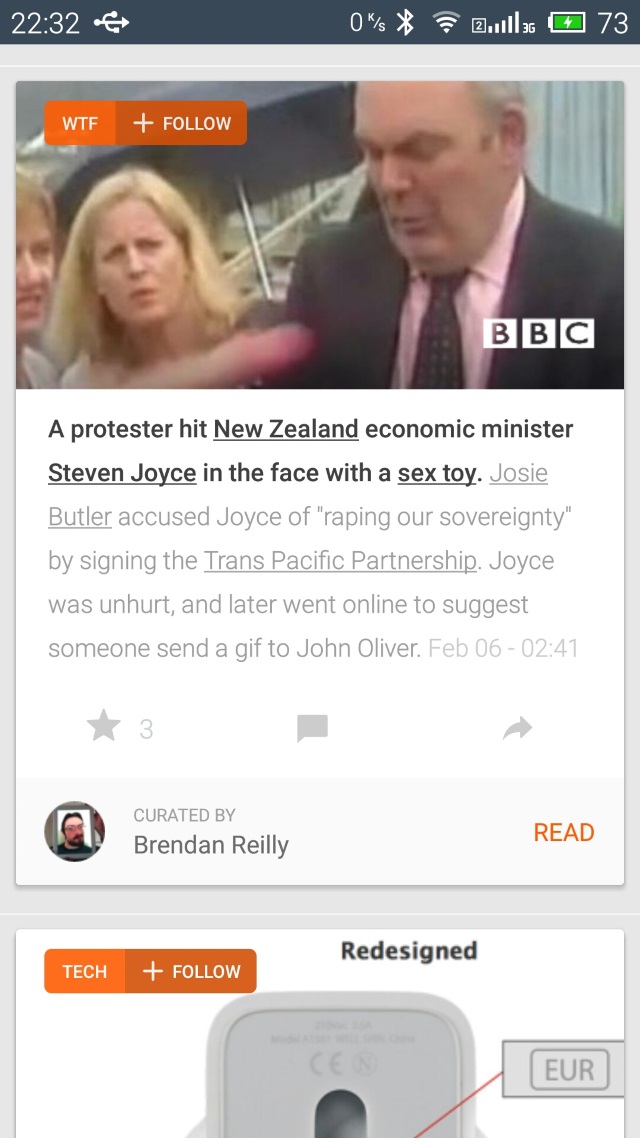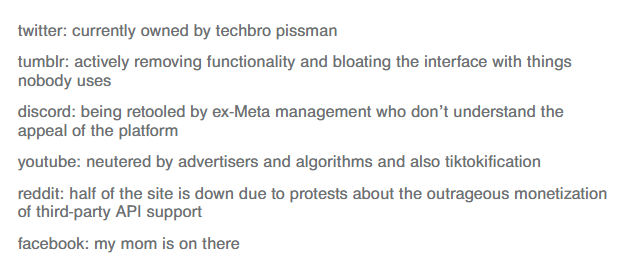I had a chuckle at Marissa Mayer saying that Google results are worse because the web is worse.
As I’ve shown with a site:lucire.com search, which is a good one since our site pre-dates Google (just), Google is less capable of providing the relevant pages for a typical search.
I know how web spiders work in theory, and there’s no way that 2002 framesets are coming up in a 2023 crawl. We haven’t linked to those pages for a long, long time. But Google is throwing those into the top 10.
And we can extend this argument: Google, through its advertising, incentivized the creation of the very crap polluting the web.
Mayer said, ‘I think because there’s a lot of economic incentive for misinformation, for clicks, for purchases.
‘There’s a lot more fraud on the web today than there was 20 years ago.’
What’s the bet that these fraudulent pages are carrying Google ads?
As Don Marti, who knows a lot more about this than I do, said to me: ‘It’s all about moving traffic and ads away from sites that people want, and that advertisers want to sponsor, to places where Google gets a bigger % of the ad money (even if they’re on the sketchy side)’.
I think all this was foreseeable, and one could prove negligence on Google’s part. I still remember a time when established publishers like me wouldn’t join Google’s ad programmes because they were seen as an advertising service for second-rate (or worse) sites. They would appear on places like Blogger, which Google wound up buying.
Then the buggers wound up monopolizing the area, and things got worse for digital publishers as the ad rates got lower and lower—and, as Don notes, the money can find its way to the bottom feeders.
So Google does have a problem, and it is also the cause of a problem. Maybe breaking it up will solve some of them, and I’m glad the US Department of Justice is finally courageous enough to do something about it.
A spot-on insight from Brenda Wallace earlier today on Mastodon.
An irrelevant side note: it turns out the previous post was the 1,234th on this blog.







